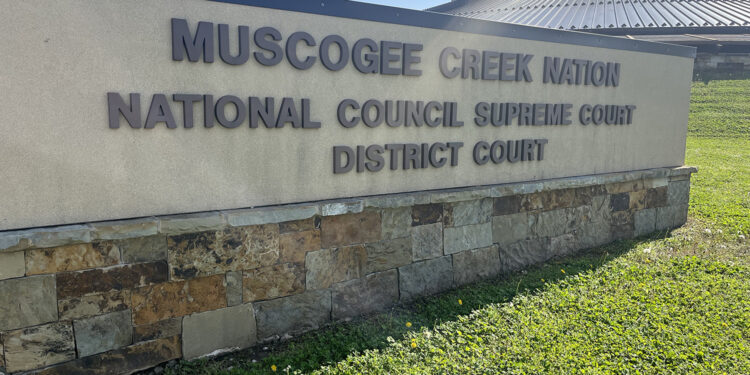OKMULGEE, Oklahoma – The Muscogee (Creek) Nation National Council adopted the Supplemental Crimes Act to supplement the MCN Criminal Offenses Code of Laws listed in Title 14 of MCN Code for future cases tried in the tribe’s court due to McGirt.
The decision of the Supreme Court in 2020 reaffirmed the Muscogee Reservation status and the tribal justice system has since been evolving.
With affirmation came quick and haste responsibility from the Nation including immediate expansion of law enforcement, going into agreements with local, state and federal municipalities, prosecution in the courts, and the need to consider the scope of criminal law.
According to the bill, NCA 22-048, the MCN Code has not undergone significant revision since 2010.
Furthermore, the bill states that the existing MCN laws are inadequate to address all acts of criminal misconduct that are occurring under the jurisdiction of the Nation.
The Act was originally introduced as bill NCA 20-040, the Assimilation Crimes Act but was redrafted as the Supplemental Crimes Act (NCA 20-048) to eliminate using language that could trigger trauma.
During an April 5 Emergency Session, MCN National Council General Counsel Kyle Haskins said it was an odd name for a piece of legislation that was made to fill gaps.
According to Haskins, this was done at the request of the MCN Attorney General’s Office to help expand prosecutorial duties.
Laws are being drafted and created by Haskins along with a small team and approval from the MCN National Council. These laws are being adopted and added to MCN Code slowly, but can be a long process.
“Some day we will have the staff to be able to revisit our laws,” Haskins said. “But right now, we don’t have anybody dedicated to that and it would take multiple people.”
Haskins explained the Act as a temporary solution; he said this would allow prosecutors to move forward with cases while laws are still in creation phases and would help by setting precedence in the courts.
“Since McGirt we have had a number of cases that have been referred to us by state agencies and we could not prosecute those crimes,” he said.
Due to the lack of judicial precedence in tribal courts for certain crimes, the stockpile of stagnant cases awaiting prosecution from the MCN needs assistance by using the state and local municipalities preceding law.
“It does not violate any sovereignty issues,” Haskins said.
The legislation states that MCN law would remain the primary prosecuting agency for each case.
NCA 20-048 was adopted by the National Council during the April 12 Emergency Session with full support.
The legislation and previously recorded meetings can be viewed at: www.mcnnc.com.





